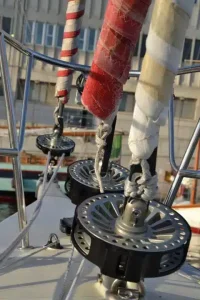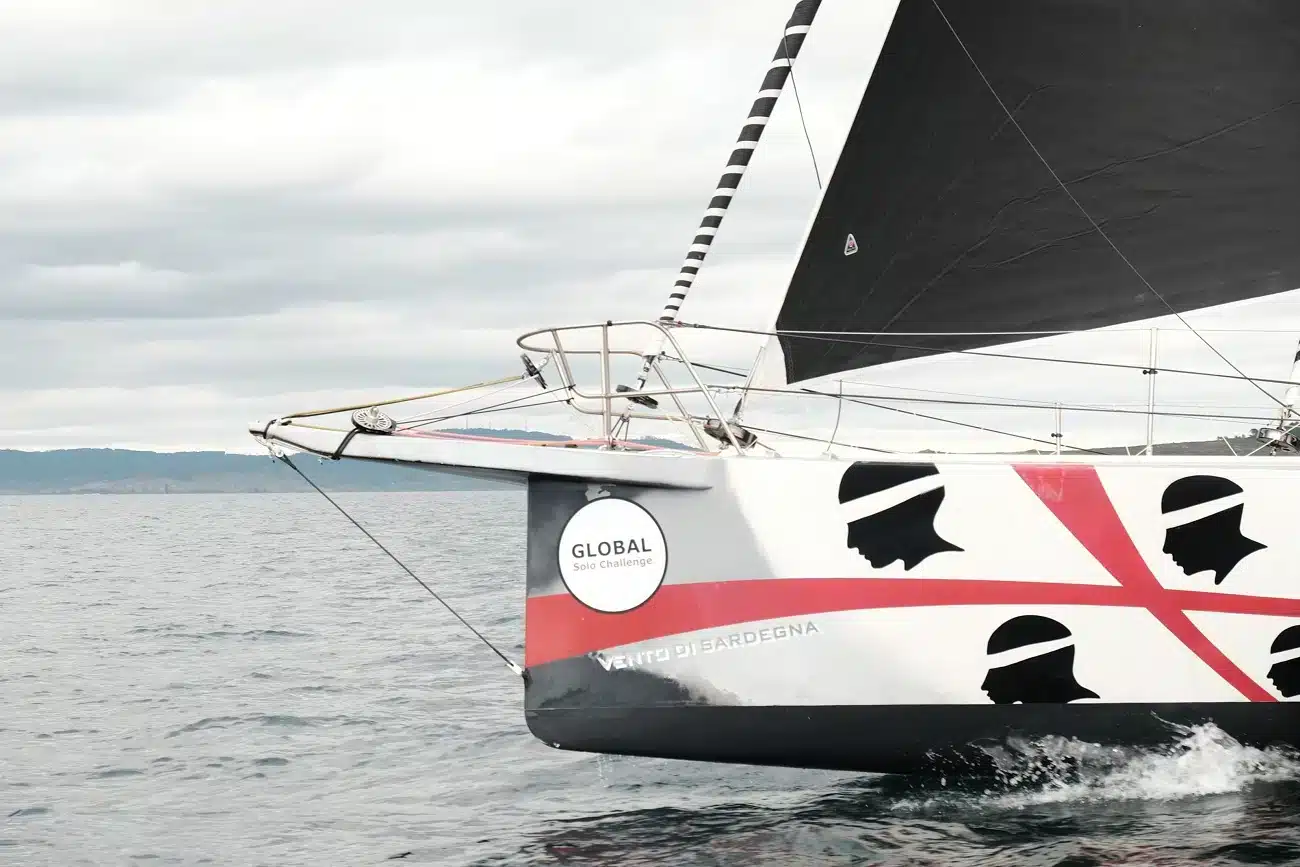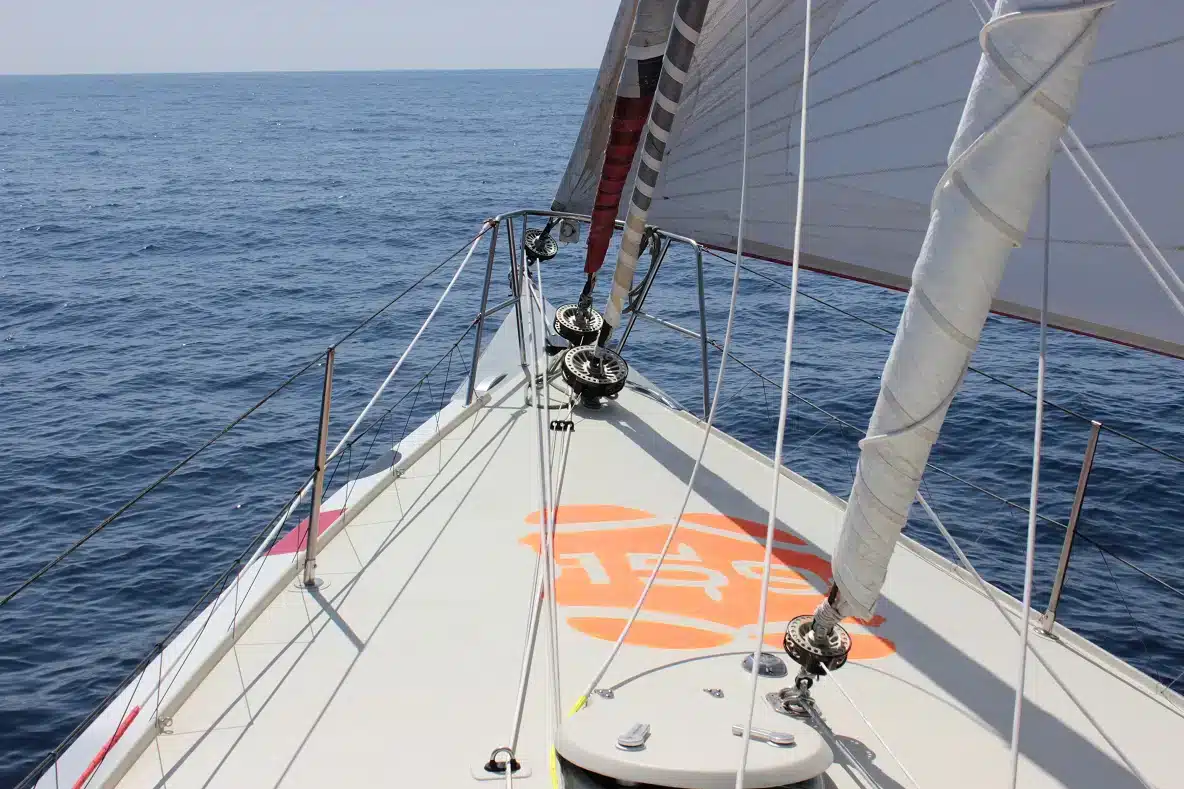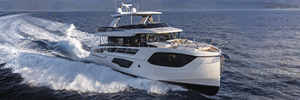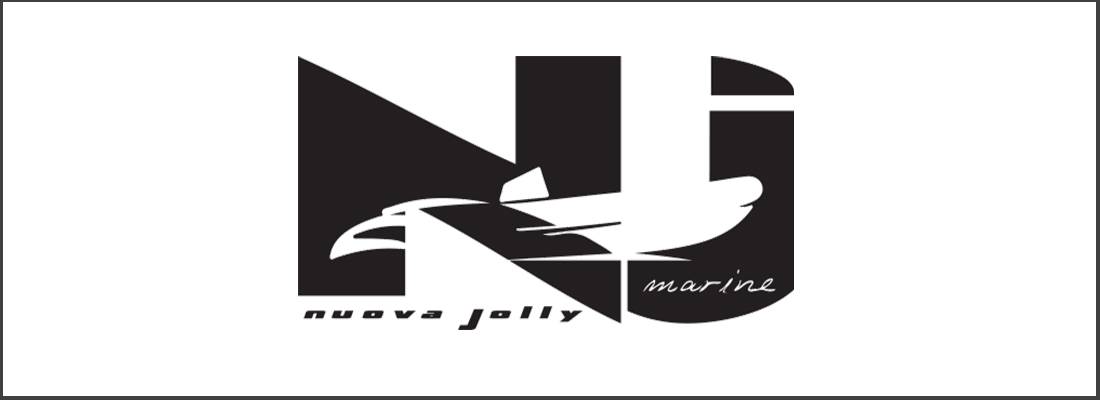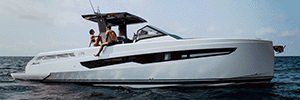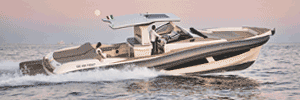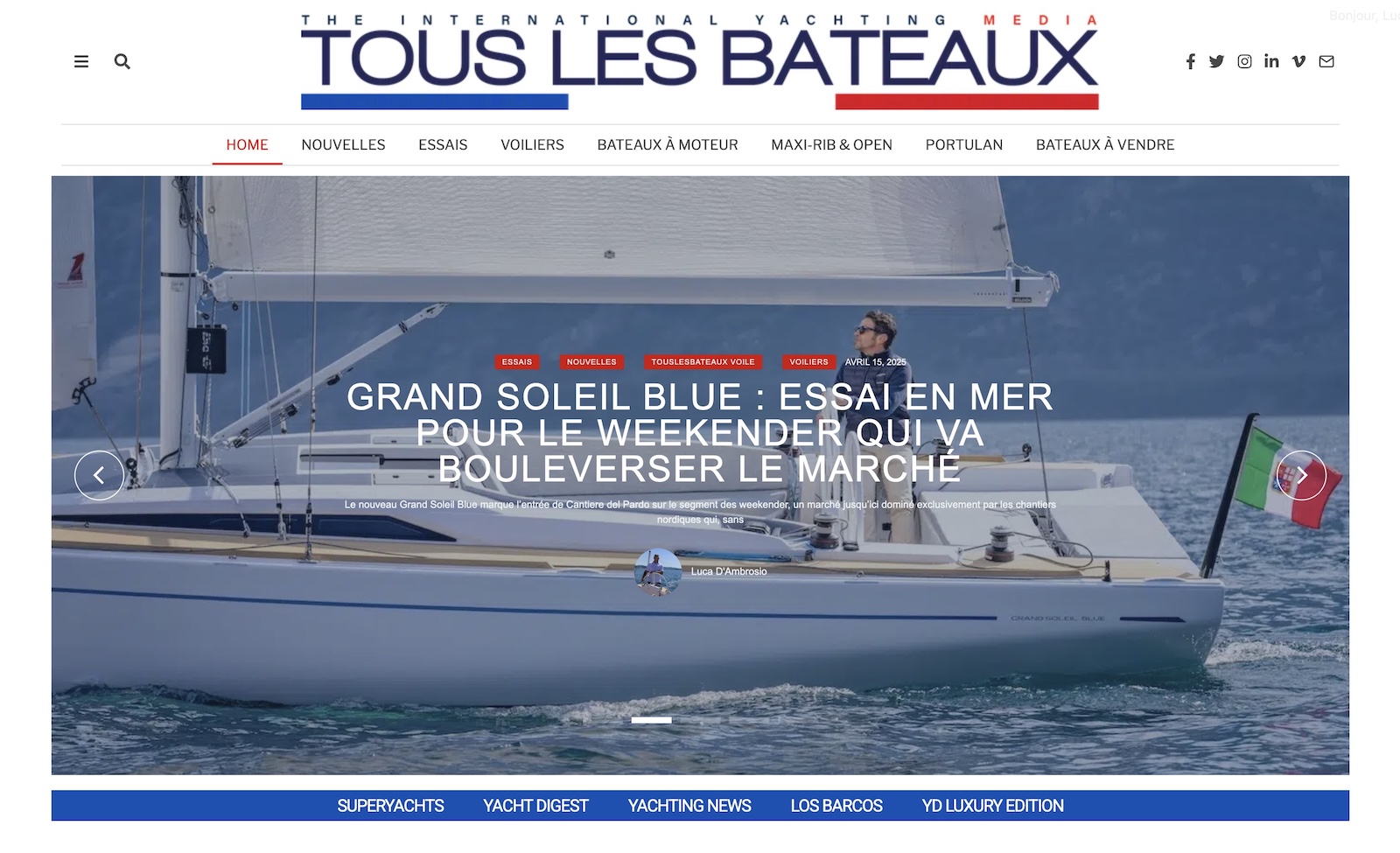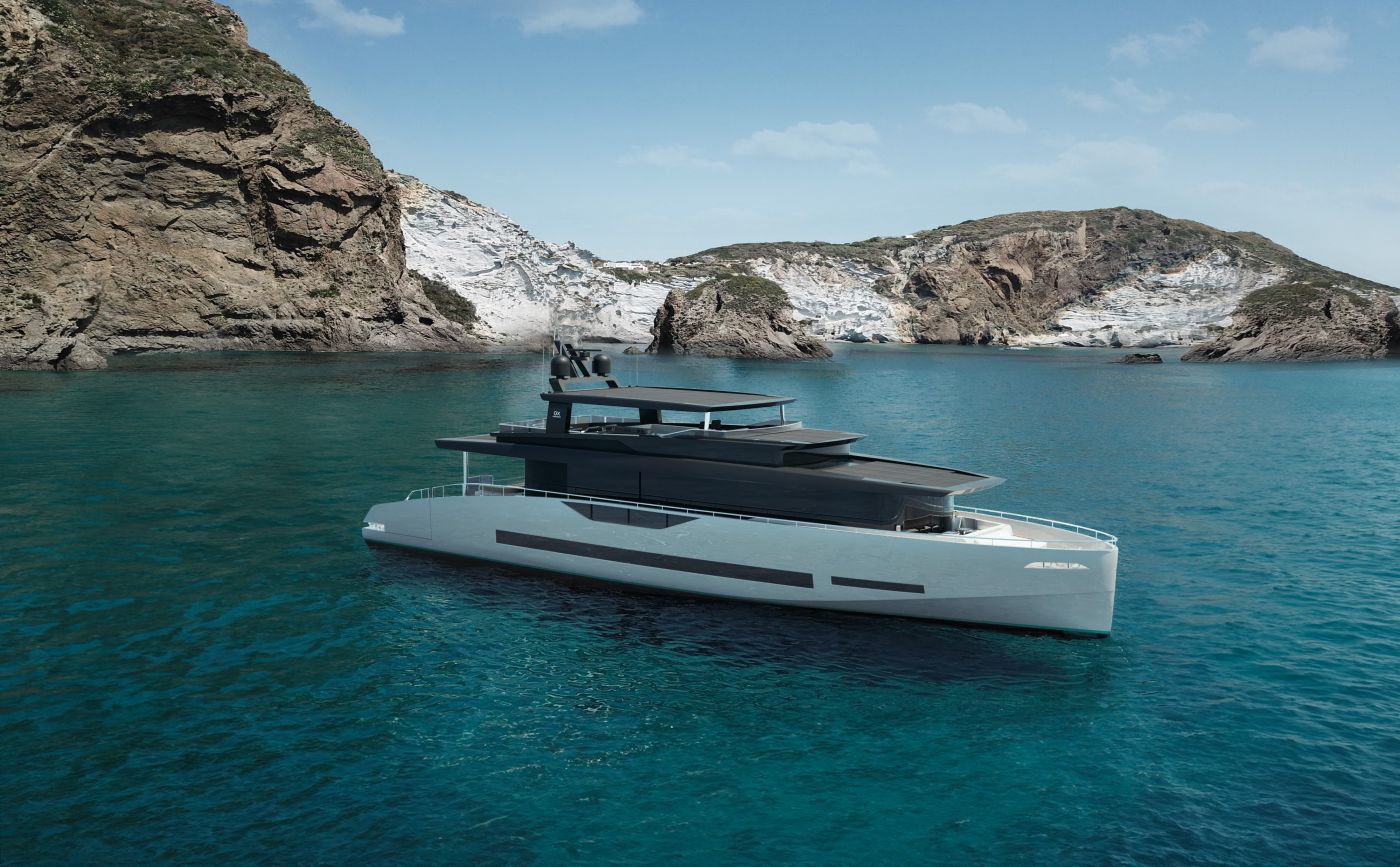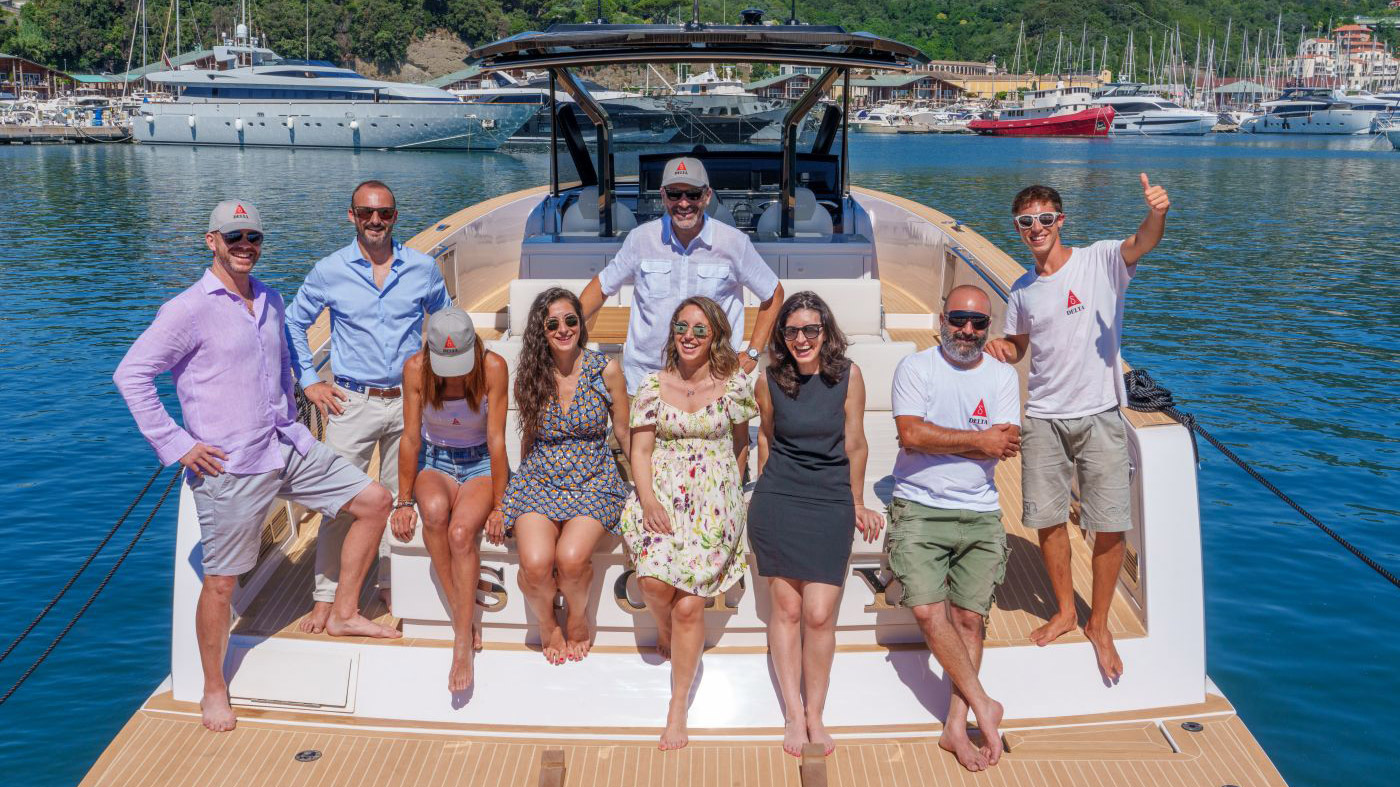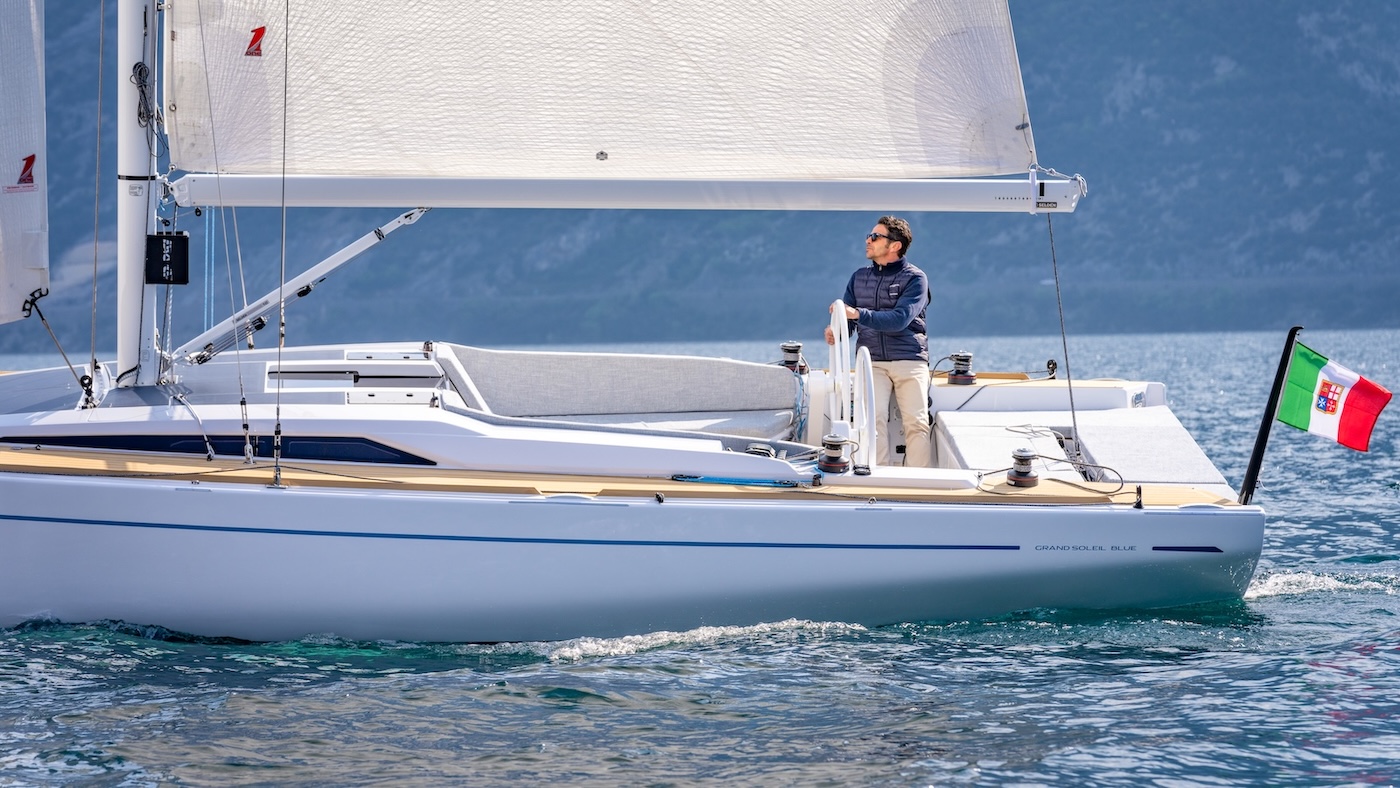How to prepare a sailboat to withstand storms of over 60 knots and waves as high as 7 meters? We asked someone who has done it successfully: Francesco Tamburini, Sales Manager at Bamar, is indeed among the mayor protagonists who have contributed to the extraordinary result of Andrea Mura, who recently completed the Global Solo Challenge. This is an extremely tough race, a solo circumnavigation of the world in an anti-clockwise direction, starting from Coruña, Spain, to reach the Antarctic, passing through the three great capes in an eastward direction (Cape Horn, Cape of Good Hope, and Cape Leeuwin), crossing Australia, and returning towards Spain. It’s a feat of madness, where the sailor finds himself alone in the middle of the ocean for four months, even at night, without anyone to help him. Andrea Mura finished the feat in third place, after over 120 days of sailing that saw him overcome two extremely violent storms. His boat, “Vento di Sardegna” (Sardinian Wind), held up where other competitors had to give up due to dismasting, and the credit for this achievement is not only due to the extraordinary helmsman, but also to his equipment. In particular, Mura’s boat relies on Bamar furlers, which have been able to withstand considerable stress, demonstrating their outstanding resilience.
So Francesco Tamburini tells YachtingNews about preparing a sailboat for a race like this and how important the technical preparation that his company can provide to sailors intending to embark on such ventures is: “Andrea Mura’s boat, a dated Open 50 deeply transformed, is equipped at the bow with four furling and removable sails – code zero (reacher) J1, genoa J2, jib J3, and storm jib J4 – which are mounted on drums and Bamar Evo heads. These are equipment with a working load ranging from five to seven and a half tons, paired with highly performing stays capable of withstanding extreme forces of traction and torsion. The legs of the Global Solo Challenge have been extremely tough, and we can say that the Bamar furlers have held up perfectly. This is a reason for particular pride for our company, as the equipment mounted by Mura is the same as that found on the market and supplied to sailboats dedicated to quieter cruises: we can therefore say that if the Bamar furlers have withstood storms of over 60 knots, they can be absolutely reliable!”
“The furling sails on ‘Vento di Sardegna’ don’t require going to the bow to handle them – explains Tamburini – and they have such performance that there’s no need for running before the wind, typical of displacement boats, but rather they allow for consistently narrow angles and traveling with them relatively trimmed. More specifically, the code zero J1 is very powerful and has a very round leading and trailing edge, designed to ensure top performance and extreme speed. With furling sails like these, it’s necessary to have furlers that can support them properly.” Here comes Bamar into play, which just before Andrea Mura’s departure took care of a complete overhaul of his furlers, installed eight years earlier. Tamburini continues: “This equipment had already faced several ocean races, even challenging ones, so Mura was rightly meticulous and asked us for a complete check-up. To our satisfaction, we found that everything was in perfect condition. However, we replaced the bearings and seals as a precautionary measure, and we can say that so far they haven’t caused any problems.”
